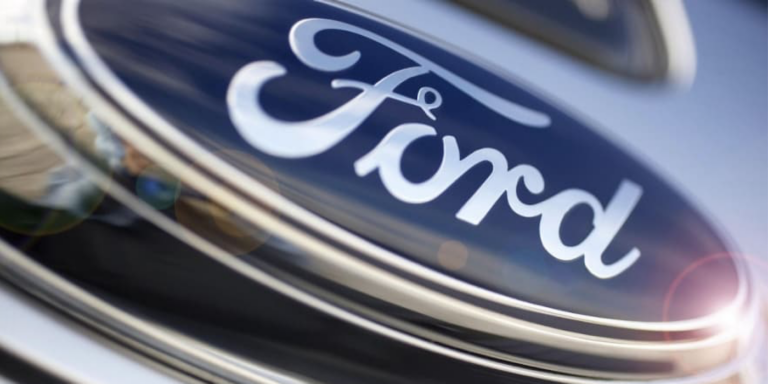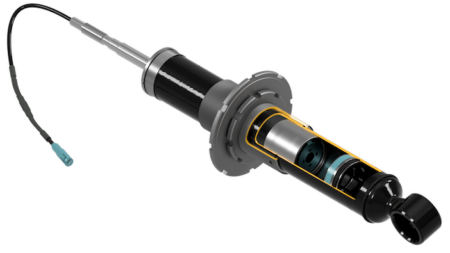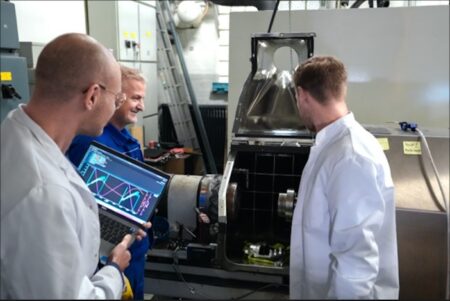Ford and Volkswagen (VW) have signed an agreement that expands their global alliance to leverage their capabilities in the midsize pickup trucks and commercial and electric vehicle sectors. The alliance does not include any element of cross-ownership between the companies: they will remain competitors in the marketplace.
The companies expect the alliance will enable vehicle innovations to come to market more rapidly, including relevant new technologies, improved utility and more model choices. Ford and VW anticipate continued growth in global industry demand for commercial vehicles and for high-performing electric vehicles, and expect the alliance to add valuable scale to their individual product portfolios.
Specific aims of the alliance include producing a medium pickup truck engineered and built by Ford, for sale by Volkswagen as the Amarok starting in 2022 within the Volkswagen Commercial Vehicles lineup. It is also intended to further strengthen the commercial-vehicles businesses of both companies as early as 2021 – with a city delivery van based on the latest Caddy model, developed and built by Volkswagen Commercial Vehicles, and later a 1-ton cargo van created by Ford. The alliance is also expected to lead to a highly differentiated Ford electric vehicle for Europe by 2023, built on Volkswagen’s Modular Electric Drive, or MEB, toolkit, expanding on Ford’s zero-emission capabilities in the region.
During the lifecycles of the products, the companies expect to produce up to a combined eight million medium-category pickup trucks and commercial vans.
“In light of the Covid-19 pandemic and its impacts on the global economy, more than ever it is vital to set up resilient alliances between strong companies,” explained Volkswagen Group CEO, Dr Herbert Diess. “This collaboration will efficiently drive down development costs, allowing broader global distribution of electric and commercial vehicles, and enhance the positions of both companies.”
Ford CEO Jim Hackett added, “This alliance comes at a time of tremendous enthusiasm about the intersection of increasingly intelligent, connected vehicles in an ever-smarter world. This creates a huge opportunity to innovate and solve many of the world’s transportation challenges and deliver extraordinary benefits to customers – even as companies need to be selective about how they use their cash.”
Ford and Volkswagen both have strong commercial van and pickup businesses around the world, including popular models such as Ford’s Transit and Ranger, and Volkswagen Commercial Vehicle’s Transporter, Crafter, Caddy and Amarok.
“Commercial vehicles are fundamental to Ford today and an area where we will accelerate and grow, and working with Volkswagen on these platforms will provide both of us significant financial advantages in things like engineering, and plants and tooling,” said Jim Farley, Ford’s chief operating officer. “Separately, Ford will add battery-electric versions of Transit and F-150 in the next 24 months for commercial customers who increasingly need zero emissions and the power of connectivity, data and artificial intelligence.”
Ford’s use of Volkswagen’s MEB architecture in Europe will represent another cornerstone in Volkswagen’s electric vehicle strategy, and further efforts by both companies to fulfil their commitments to the Paris 2015 Agreement. VW and Ford plan to explore additional ways to cooperate on EVs.
Over several years starting in 2023, Ford could deliver 600,000 EVs based on the MEB architecture, which is designed to combine space and performance with electric drive. The vehicle, which will be designed and engineered by Ford in Cologne-Merkenich, Germany, will complement Ford’s all-electric Mustang Mach-E, which will be introduced in 2021.
Additionally, the companies will both work with Argo AI to form distinct autonomous-vehicle businesses based on Argo AI’s self-driving technology. Last week, Volkswagen closed its previously announced investment in Argo AI, the Pittsburgh-based company in which Ford already had ownership and development interests.
Argo AI’s self-driving system is the first with commercial deployment plans for both Europe and the USA. The global reach of Ford and VW will give Argo AI’s platform the largest geographic deployment potential of any autonomous driving technology to date.





